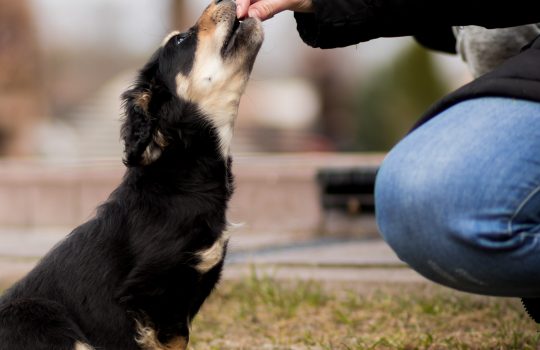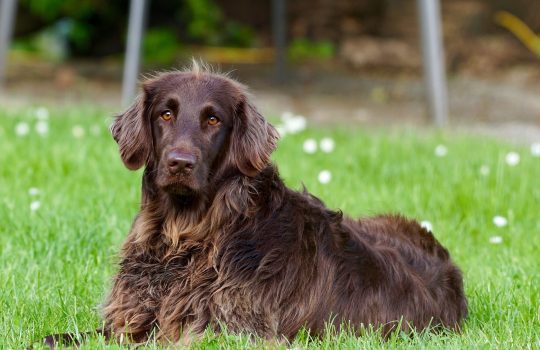Dogs are man’s best friend, they shower us with unconditional love, attention, and affection. As pet owners, it is our responsibility to ensure that our furry friends stay healthy and happy. And just like humans, diet plays a vital role in maintaining good health and preventing illnesses in dogs. In this blog, we will share some diet secrets that will help you keep your Fido in the best shape possible. So get ready to learn about the right kind of food, portion control, supplements,and much more to ensure your dog stays healthy for long!
Peanut butter as a healthy protein alternative
If you’re looking for a protein alternative for your furry friend, peanut butter could be a great option. As we mentioned before, dogs love peanut butter and it’s a good source of protein. Plus, it’s a great way to sneak in some healthy fats into their diet. However, it’s important to keep in mind that peanut butter can be high in calories and fat, so moderation is key. This is where portion sizes and consistent meal times come in. Consider using peanut butter as a special treat or mixing it in with some low-calorie dog-friendly snacks like green beans. But overall, adding some peanut butter to your dog’s diet can be a tasty and healthy addition. Keep reading for more tips and tricks on keeping your pup’s diet well-balanced and nutritious.
Research-backed diet information from veterinarians
When it comes to feeding your furry friend, there’s a lot of information out there. But who better to turn to for research-backed diet information than veterinarians? They can offer valuable insight into what your dog needs to thrive. Consider incorporating protein alternatives like peanut butter into their diet or opt for green beans as a low-calorie treat. But remember, it’s not just about what you feed them, but also how often and how much. Consistency is key when it comes to meal time and portion sizes. And while diet food may seem appealing, understanding the differences between it and regular kibble is important. Avoid the temptation to free feed, as this can lead to obesity in dogs. Instead, focus on providing a balanced diet that includes both warming and cooling foods. The benefits of a raw diet are also worth exploring. Take these tips from veterinarians to heart, and you’ll be well on your way to giving your furry friend the healthy diet they deserve.
Nutritional benefits of peanut butter
Now that you know peanut butter can be a healthy protein alternative for your furry friend, let’s dive into its nutritional benefits. As we mentioned before, peanut butter is loaded with healthy fats, protein, fiber, and essential vitamins and minerals that can aid in weight loss and support a well-balanced diet. Plus, it’s heart-healthy and can help lower your dog’s LDL cholesterol levels. Make sure to choose a natural and unsalted peanut butter without any added sugar or artificial sweeteners. Remember, moderation is key, and too much of anything can have negative consequences, so always keep portion sizes in mind when giving your pup some of this delicious treat.
Green beans as a low calorie dog treat
Now that you have some knowledge on the importance of a well-balanced diet for your furry friend, let’s talk about treats! If you’re looking for a low calorie, nutrient-packed treat for your dog, green beans are a great option. Not only do they contain fiber and essential vitamins like A, C, and K, but they also provide a satisfying crunch that dogs love. It’s important to note that you should only give plain green beans, avoiding canned options that are often high in sodium. Giving your dog healthy treats like green beans can not only satisfy their snack craving, but also contribute to their overall health and well-being. Remember, moderation is key when it comes to treats, so be sure to stick to appropriate portion sizes and incorporate them into a well-balanced diet for your furry friend.
The importance of consistent meal time and portion sizes
Now that you know about the nutritional benefits of peanut butter and green beans for your dog, let’s talk about the importance of consistent meal times and portion sizes. Just like in our own diets, it’s important to establish a routine for our furry friends. By feeding them at the same times each day, their bodies begin to adapt to the schedule and regulate their hunger levels accordingly. This can also aid in digestion and prevent stomach upsets. Additionally, paying attention to portion sizes is crucial to maintaining a healthy weight for your dog. Using measuring cups or a food scale can ensure that you are providing them with the appropriate amount of food for their activity level and size. By incorporating these simple habits into your dog’s diet, you can help them maintain a healthy weight and promote overall wellness.
Differences between diet food and regular kibble
Now that you know the importance of feeding your pup a high-quality diet, it’s important to understand the differences between diet food and regular kibble. Diet food is designed to be lower in calories, which can be helpful for dogs who are overweight or prone to obesity. However, it’s important to note that not all diet food is created equal. Some brands may skimp on important nutrients in order to cut down on calories. Regular kibble, on the other hand, may be higher in calories but can still provide a well-balanced diet when made with quality ingredients. It’s important to consult with your veterinarian to determine the right diet for your pup based on their specific nutritional needs. Remember, a well-balanced diet is key to keeping your furry friend happy and healthy for years to come.
Free feeding and obesity in dogs
If you’ve been free feeding your dog, it’s time to stop. As you learned earlier, most dogs do best with controlled feeding circumstances. Being able to graze all day can lead to obesity, which is a serious concern for dogs. Taking the research-backed advice of veterinarians, you know that portion control is key to a healthy diet. But if you’re leaving food out all day, it’s impossible to control portions. So, it’s time to switch to a consistent meal time and portion size schedule. Your dog will benefit from the routine and you’ll be able to better manage their weight. Not to mention, it’ll be easier to monitor their overall health if you know exactly when they’ve eaten and how much. So, say goodbye to free feeding and hello to a healthier Fido!
The concept of warming, neutral, and cooling foods for dog nutrition
Now that you understand the importance of a well-balanced diet for your furry friend, let’s dive deeper into the concept of warming, neutral, and cooling foods. Certain foods can either raise or lower your dog’s body temperature, which can affect their overall health. If your pup tends to run hot, try incorporating more cooling foods such as spinach, broccoli, and celery into their diet. On the other hand, if your dog runs cold, warming foods like chicken and lamb can help promote balance. Remember, a balanced diet is key to keeping your pup healthy and happy, so don’t be afraid to experiment with different types of food to find what works best for them.
The benefits of a raw diet for dogs
Now that you have learned about the importance of consistent meal times and portion sizes, it’s time to consider the benefits of a raw diet for your furry friend. A raw diet that consists of fresh, natural foods is full of essential fatty acids and amino acids that can help maintain a healthy immune system and coat. Not to mention, the high protein and fatty acid content in raw diets can help build lean muscle mass and keep your pet at a healthy weight. Additionally, raw diets contain cancer-fighting and anti-inflammatory polyphenols found in vegetables like broccoli and kale. While it may require a bit more effort to create a well-balanced raw diet, the benefits are undeniable when it comes to your dog’s overall health and well-being. So, consider making the switch to a raw diet for your furry friend and watch the positive changes in their health and appearance.
Now that you’ve learned about some great nutrition tips for your furry friend, it’s important to emphasize the significance of a well-balanced diet. As with humans, dogs also require a balance of different nutrients to maintain optimal health and wellbeing. This involves feeding your dog a variety of foods, including protein, carbohydrates, healthy fats, vitamins and minerals. While treats and snacks are great for rewards and training, they should not make up a large part of your dog’s diet. Consult with your veterinarian to determine the appropriate amounts and types of food for your individual dog’s needs. By providing a well-balanced diet for your furry friend, you’re taking a crucial step in supporting their overall health and happiness.




